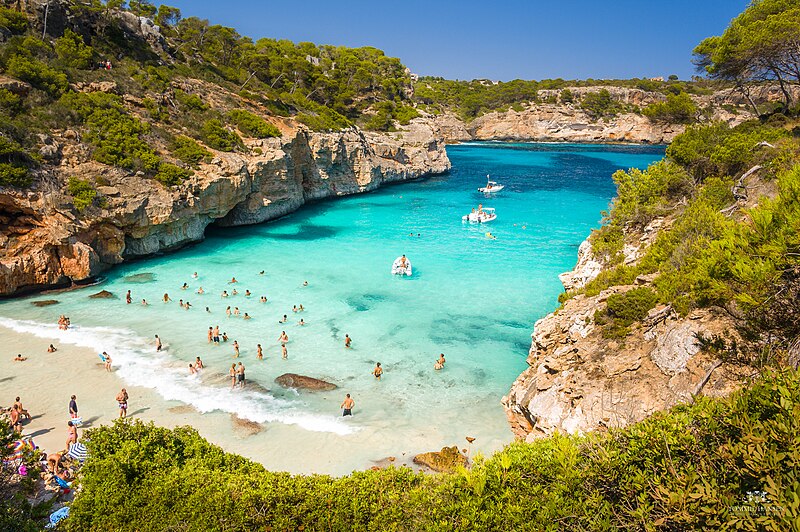
This summer in Majorca, two unstoppable forces converge: the timeless waves of the Balearic Sea and a modern tsunami of tourism. Beaches are packed, parking is scarce, and sunbeds are
fiercely contested. The island's hotels, restaurants, and bars buzz with the incessant beeping of contactless payment machines, indicating a booming tourism economy.
However, not everyone is reaping the benefits. Sonia Ruiz, a 31-year-old mother living in Palma, struggles to find affordable housing. Despite earning a combined income of 2,400 euros a month with her separated partner, they can't afford to live apart due to soaring rents. Landlords demand several months’ deposit and often refuse tenants with children or pets. "Every day I’m looking, and every day the rent is higher," Sonia laments.
Like many Majorcans, Sonia is protesting this weekend against the surge in tourism, which is blamed for declining living standards. Activists argue that the influx of foreign property buyers and summer renters drives up housing costs. “It’s impossible to sustain this sort of model," says Pere Joan Femenia, a 25-year-old activist with the "Menys Turisme, Més Vida" ("Less Tourism, More Life") movement. Pere, initially part of Greta Thunberg’s climate movement, now focuses on the cost of living for locals. He argues that unprecedented tourism is not only pricing out residents but also overburdening public spaces, services, and natural resources.
Businesses are shifting from traditional products to multinational chains, eroding Majorca's cultural identity. Pere points out that some cruises bring as many as 12,000 visitors daily, challenging the myth that Majorca's survival depends on ever-expanding tourism. Instead, many locals are considering leaving the island because they can no longer afford to live there.
Activists are demanding limits on flights and cruises to ease the pressure on the island. Last year, 14.4 million foreign tourists visited the Balearic Islands, with Majorca being the most popular destination. Including Spanish visitors, activists estimate that the Balearics could see 20 million tourists this year. As tourist numbers grow, so does local resentment, exemplified by recent water pistol incidents in Barcelona and protests in Malaga and the Canary Islands.
Some British newspapers have even listed "hostile holiday hotspots" to avoid in the summer of 2024. Yet, for many tourists, the allure of Majorca remains. On a crowded beach in Magaluf, Adam Green from Rotherham enjoys his first trip abroad with his wife and seven kids. Despite hearing about the protests, they decided not to let it affect their holiday plans. "With no tourists, there’d be no jobs, no wages, no nowt. They rely on it, don’t they?” Adam says, reflecting a common tourist perspective.
As the debate over the impact of mass tourism intensifies, Majorca finds itself at a crossroads, balancing economic benefits against the well-being and cultural identity of its residents. Photo by Tommie Hansen from Stockholm, Sweden, Wikimedia commons.









































